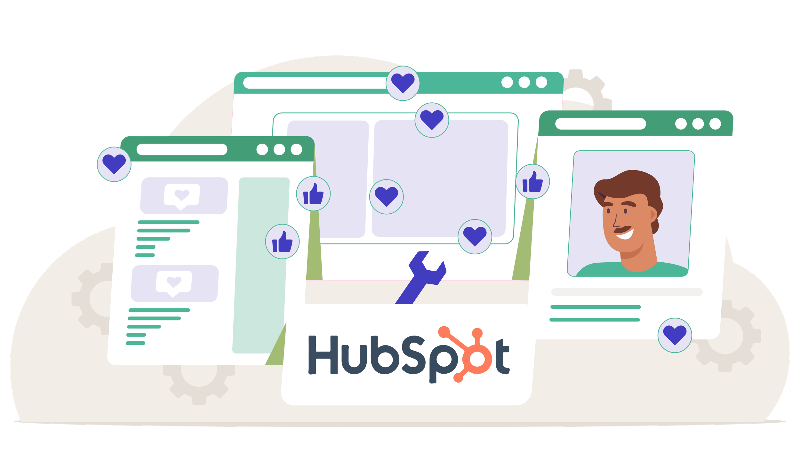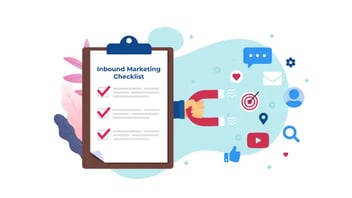In today's ever-evolving marketing landscape, brands are facing new challenges due to consumer skepticism and advancements in technology. To stay ahead, brands, business owners, and startup entrepreneurs are embracing the power of social proof to drive growth and shape consumer behavior.

Just what is social proof?
Social proof is the idea that consumers modify their behavior according to what other people are doing. It is the social and psychological phenomenon that the influence of other people's actions, attitudes, and beliefs, both in-person and online, impacts our behavior.
Categories of social proof
Expertise
Generally, people value the opinions of industry experts and thought leaders in their respective niches.
Expert social proof is when an expert in an industry recommends products or services or associates with a particular brand.
It is expert social proof when an industry thought leader or influencer approves of a particular product. This can be a blog post, social media post, or being quoted or pictured as a product user.
Certification as social proof is when there is a stamp of approval by an authoritative figure in a particular niche or industry. Think of the blue checkmark on Twitter or Instagram.
Credentials
Credentials prove expertise in a more quantifiable way than reputation. While user testimonials add value to a product, business credentials add trust. A business can promote credentials like how many customers are using its products and services, particularly well-known customers, or awards and certifications held by the business. If you're a sole proprietor, you can use your education and degrees as a credential your customers should consider.
Celebrity/Influencers
People often have a stronger desire for something if they see it worn or used by a celebrity. Marketing has always used celebrity endorsers. Now, they're called influencers.
This social proof typically involves a celebrity using a product and promoting it on social media. This is particularly meaningful social proof when the endorsement is unpaid.
Users
Here, social proof involves reactions and responses to products and services by people who have purchased them. This is often user-generated content, such as reviews of the product or service hosted online, praise on social media, or positive ratings on review sites.
Any kind of testimonial can have the same impact. The social proof is generated by customer reviews on the business's website, a review on a third-party website, a star-based rating, or a case study. Any of these testimonials create social proof through positive feedback from actual users.
Of course, it's necessary to remember how your startup cultivates the sort of clients or customers who want to share their positive feedback with the masses.
As a marketing team, you can highlight and display the user experience for prospects through case studies, customer stories, and testimonials. You can feature this type of content internally and externally. It can be beneficial for prospects to see on a landing page when they are on the cusp of deciding in favor of your brand and the products or services you provide.
You can help your cause by reminding customers to leave reviews or share their experiences.
Wisdom of crowds
It is human nature not to want to be left out or left behind. FOMO, fear of missing out, is an established human reaction. This social proof involves buyers doing their buying because it seems like everybody else already is. This happens when a large number of people are seen to be endorsing your brand.
Just how important traffic from social media varies from company to company. Still, nobody can afford to undervalue the influence social media posts about your brand can have on potential customers.
Suppose any press has done positive reporting about your brand. In that case, this earned media provides an opportunity to build brand awareness, backlinks to your website, and social proof that you are a brand worth paying attention to. Likewise, platforms like Yelp and Glassdoor are quick ways for potential customers to determine what the crowd says about your company.
Wisdom of friends and family
It has been repeatedly shown that people trust the opinions of their friends and family. Most anyone is more likely to make particular buying decisions based on these people's actions and input.
Your company gains social proof when people see that their friends and family approve of your product, use it, or follow you on social media. Recommendations from people we know and trust carry more weight than other types of promotions or advertising.
Why does social proof matter?
1. Organic reach on social media is getting harder and harder to come by, and paid ads cost more than ever
Brands seek ways outside social media and paid ads to showcase their products and services. Activating user-generated content, using your customers, and highlighting buyers using your product to generate social proof provides higher ROI than retargeting ads on social media.
2. Trust in all forms of media is declining
The skepticism created by efforts to fight false advertising, fake news, and fraudulent narratives will get more intense in the future.
Consumers know false narratives are increasingly common, making them wary of your marketing messages.
Content marketers must be relevant and straightforward with their copy as they refine their brand messaging, and brands must find ways to verify and increase credibility in their marketing. Social proof offers a way to do that.
3. More consumers seek user-generated content before making a purchase
It's human nature to want advice from a friend before you buy, but what if your friends don't know anything about what you're looking to buy? You seek out someone who does know something about that product. The average consumer reads ten online reviews before making their purchase decision.
Reviews are a form of social proof that sites leverage to help make sales. If users post social proof reviews, why not play a role as the product provider? As long as you respond proactively to each review and engage all customers, you can benefit from the user-generated social proof.
4. Ad blocker use is increasing
Consumers are clear (Cybernews): they don't want to see ads. Brands seek non-invasive ways to reach prospects and convince them to become customers. Social proof can help with conversion in a non-invasive way.
5. Influencer marketing is the fastest-growing consumer acquisition channel
As potential customers see others they respect or admire using particular products and services, they might be more likely to buy. Influencers are essentially celebrity social proof.
In Conclusion
So what does this all mean for your startup? We hope this article on social proof is an eye-opening reminder of the importance of cultivating relationships. As a startup, you must build your brand's credibility and establish trust with potential customers. You can do so by being genuine and interactive on social media. Follow up when people comment. Share information that your followers have shared.
As HubSpot reminds us:
The first step [of cultivating people who will create social proof] is knowing how customers feel in general. Next, you need to take action to improve their results. Then you need to build a relationship with them. Finally, you need to ask them to participate. These are the bones of an advocacy program focused on customer success.
So, when people start purchasing your widget or utilizing your service, be sure to ask what they think and ask them to leave a review. Make it easy to leave feedback and respond accordingly. If you want customers to be champions of your brand, you must be a brand worth championing.
Regarding Celebrity/Influencer marketing, consider your target audience and consider the sort of partnerships that make sense. The type of influencer you tap into will vary greatly depending on your market. As we always say, it pays to know your buyer personas so that you know where potential customers are spending their time and what their interests are. That way, you ensure that any marketing dollars you spend on recruiting an influencer to your side won't be wasted.
Keep in mind, too, that anything too forced or sales-y will come across as just that: disingenuous. As we mentioned above, the value of an unpaid endorsement from a "celebrity" figure in your niche speaks volumes, as do the reviews from everyday customers who know you and your brand and appreciate what you have to offer them.











Leave a Comment